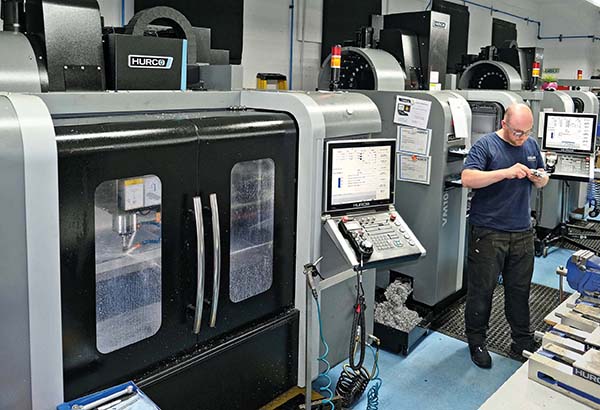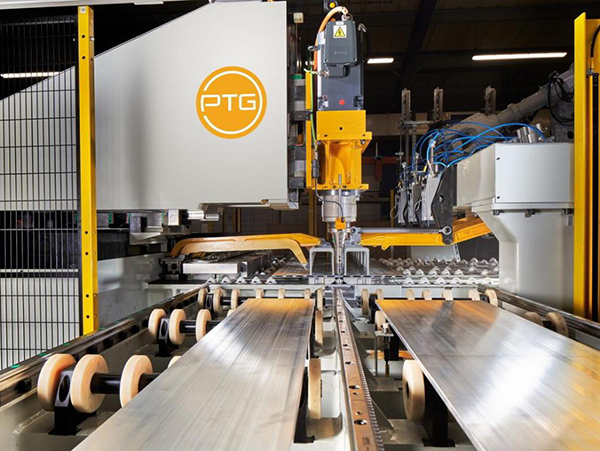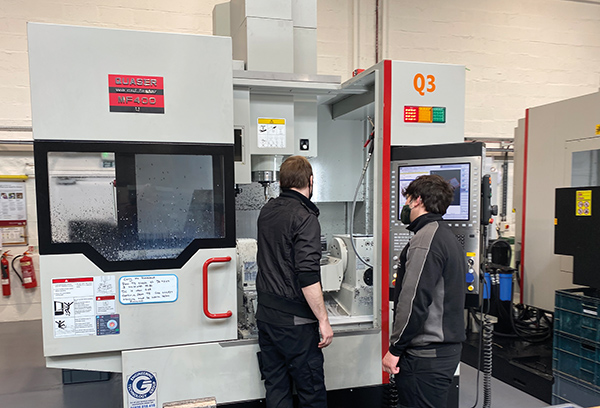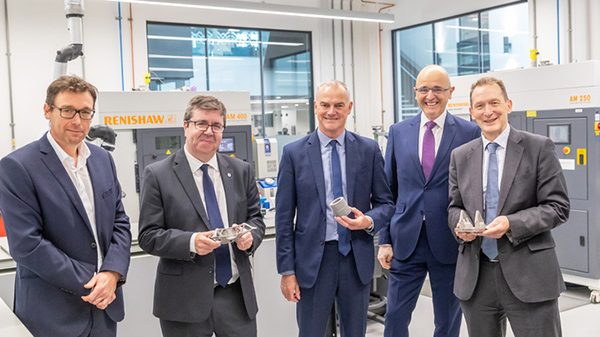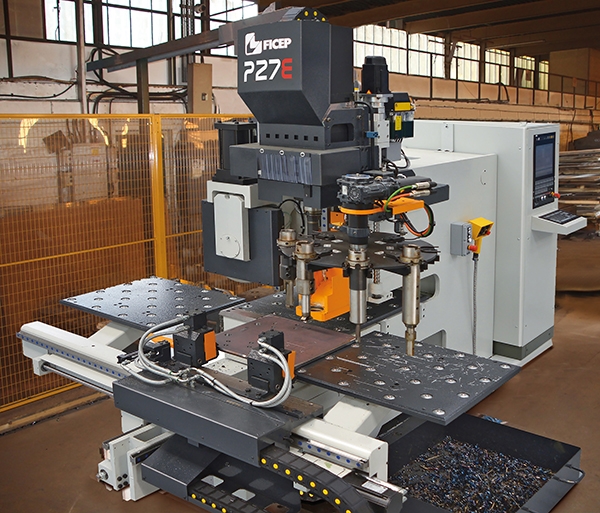
The installation of one Hurco vertical machining centre per year between 2013 and 2017, plus the addition of a sixth in May 2021, partly to take advantage of the UK government’s 130% capital allowance, have coincided with a sustained improvement in the level of business at subcontract machining firm Kelvin Precision Products. Disregarding the first year, when the start-up firm’s income was relatively low and therefore unrepresentative, turnover has increased five-fold compared with the second year of trading.
Following the success of the first VMC, one year later another three-axis machine arrived – a VM10i with more advanced control technology and diagnostics. Soon after, the first five-axis machine took its place on the shop floor, a VM10Ui, followed by a second in 2016. A larger VM20i three-axis VMC with a 1168 x 508 mm table arrived a year later and then a third five-axis VM10Ui in spring 2021.
Having half of its prismatic metal-cutting capacity able to produce components efficiently in fewer set-ups using 3+2-axis cycles, with the rotary axes positioned and clamped, sets Kelvin apart from many of its competitors of similar size. It provides for high-quality work, typically to tolerances of ±0.05-0.10 mm, in short timescales. Normally, components are put on a five-axis machine for Op 1 and a three-axis machine for Op 2, if it is relatively simple. Fully interpolative five-axis milling and drilling on the Hurcos is available, should suitable jobs come along.
Today, the prismatic machining of a wide range of plastics and metals, including stainless steel, mild steel, cast iron, aluminium, brass and copper, are the mainstay of the company’s day-to-day work. Some parts are over 1 m in length.
For further information
www.hurco.co.uk







